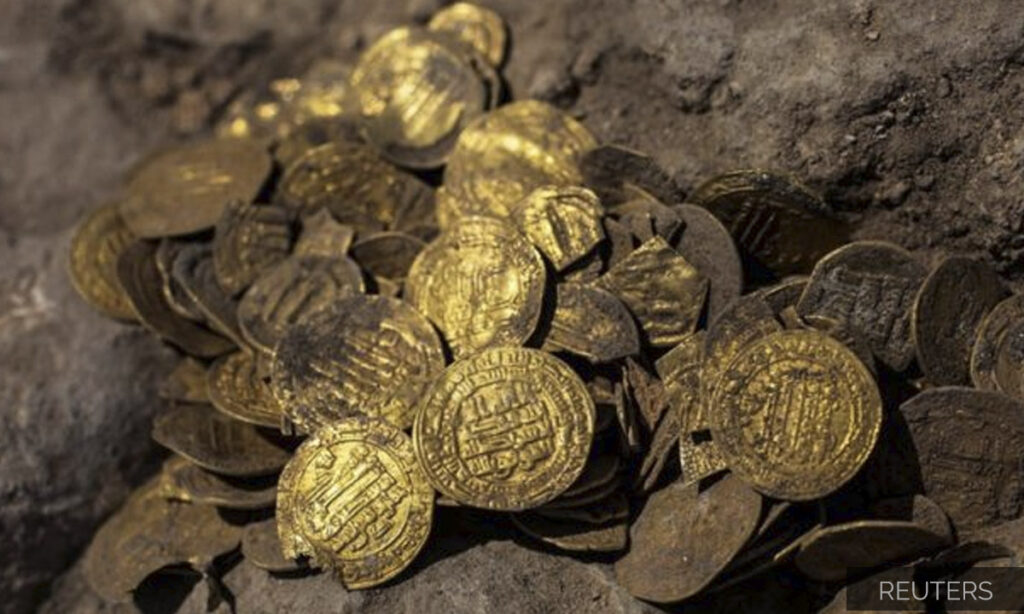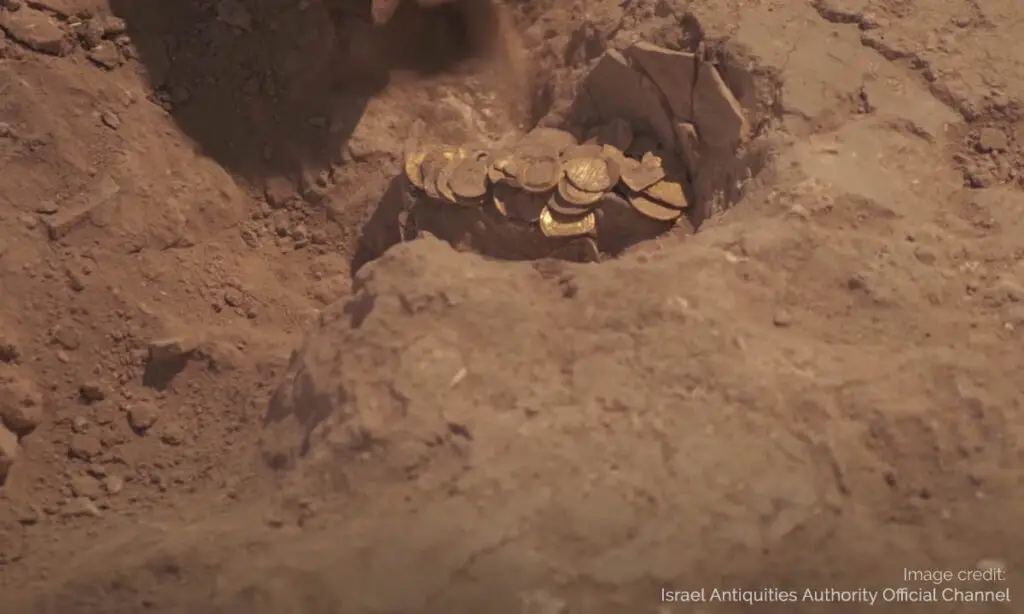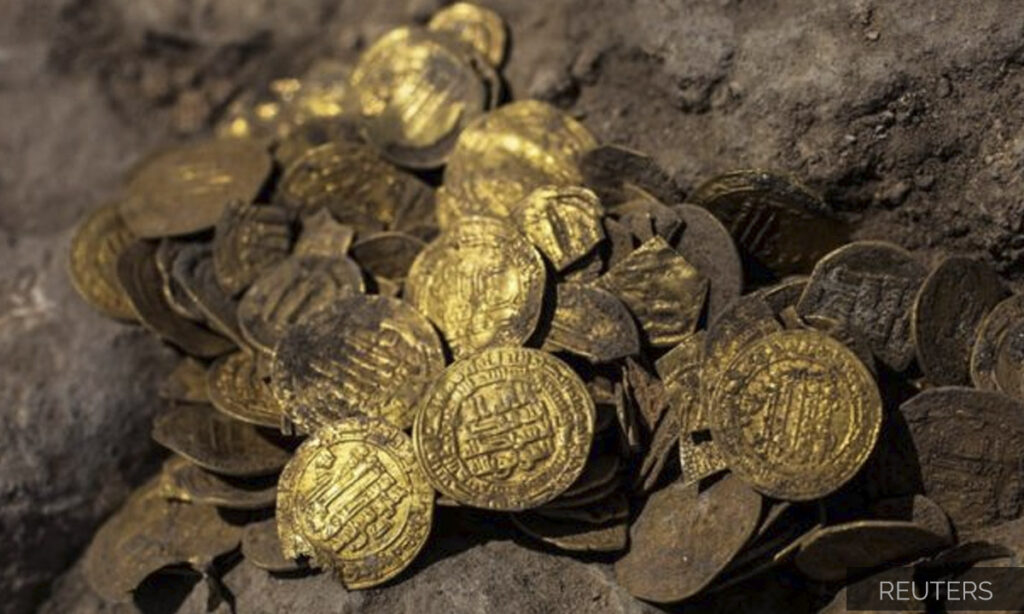Youths unearth 425 gold coins that were buried in a clay jar for 1,100 years during an archaeological dig in central Israel.
The coins found dates back to the early Islamic period to the time when it was part of the Abbasid caliphate.
The treasure was discovered on Aug. 18, the Israel Antiquities Authority said on Monday, by teenagers volunteering at an excavation in central Israel where a new neighbourhood is planned to be built.

“The person who buried this treasure 1,100 years ago must have expected to retrieve it and even secured the vessel with a nail so that it would not move. We can only guess what prevented him from returning to collect this treasure,” said excavation director Liat Nadav-Ziv.
The area it was found in housed workshops at the time the treasure was hidden and the identity of the owner is still a mystery.
“It was amazing,” said Oz Cohen, one of the volunteers who found the treasure.
“I dug in the ground and when I excavated the soil, saw what looked like very thin leaves. When I looked again I saw these were gold coins. It was really exciting to find such a special and ancient treasure.”

Dating back to the ninth century Abbasid Caliphate period, the 425 24-carat pure gold coins would have been a significant amount of money at the time, said Robert Kool, a coin expert at the Antiquities Authority.
“For example, with such a sum, a person could buy a luxurious house in one of the best neighbourhoods in Fustat, the enormous wealthy capital of Egypt in those days,” Kool said.
